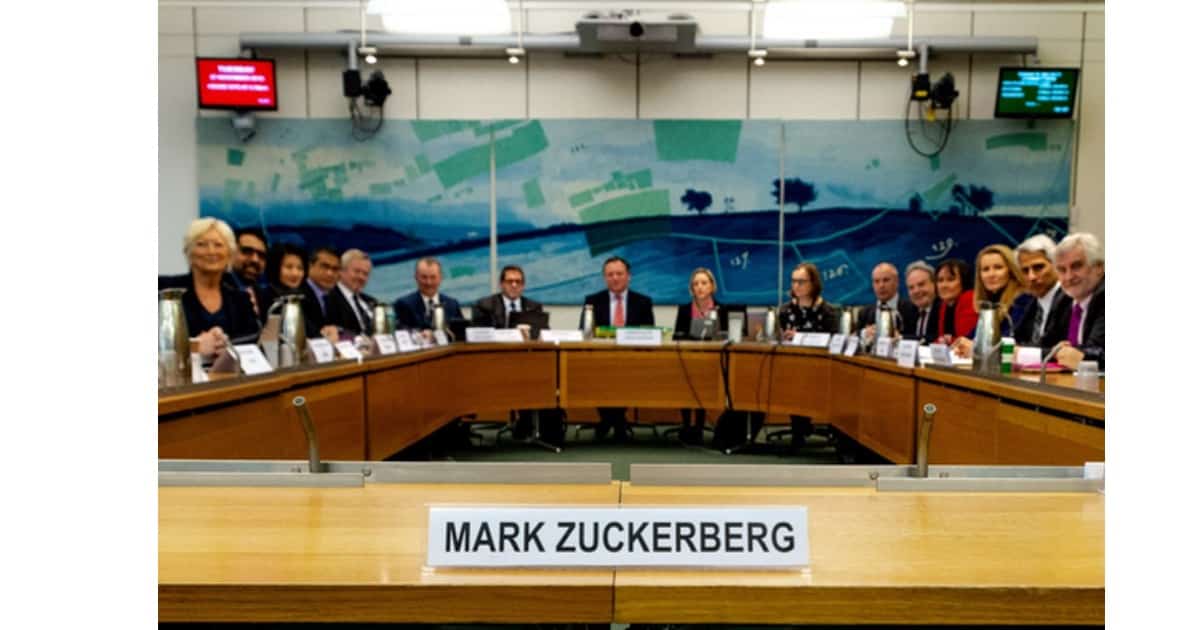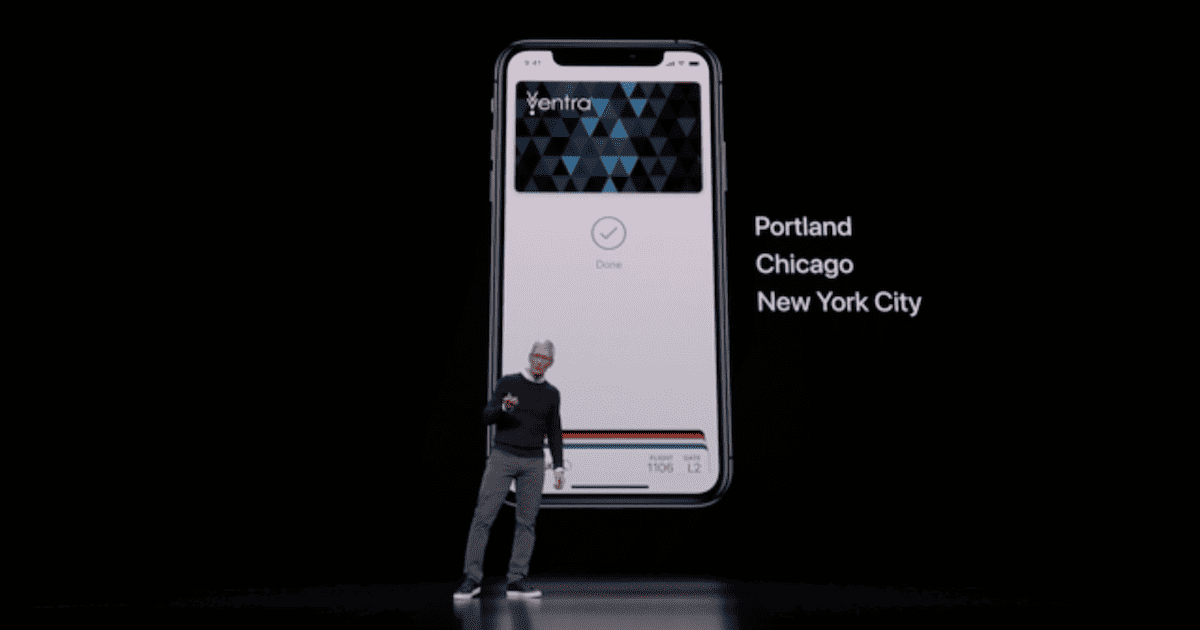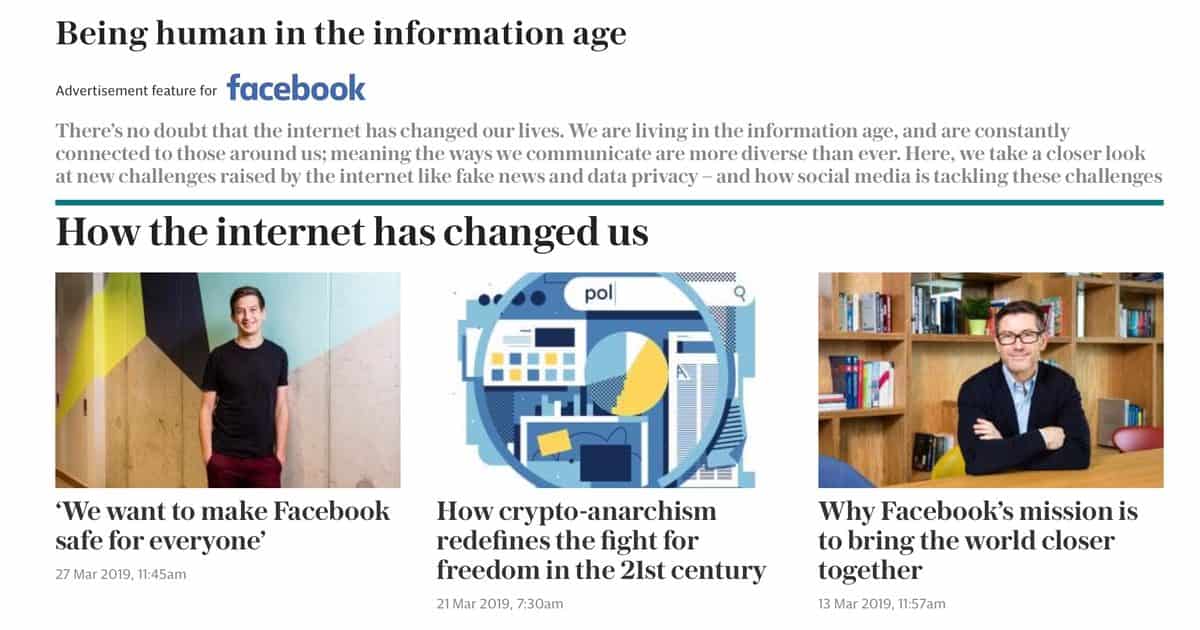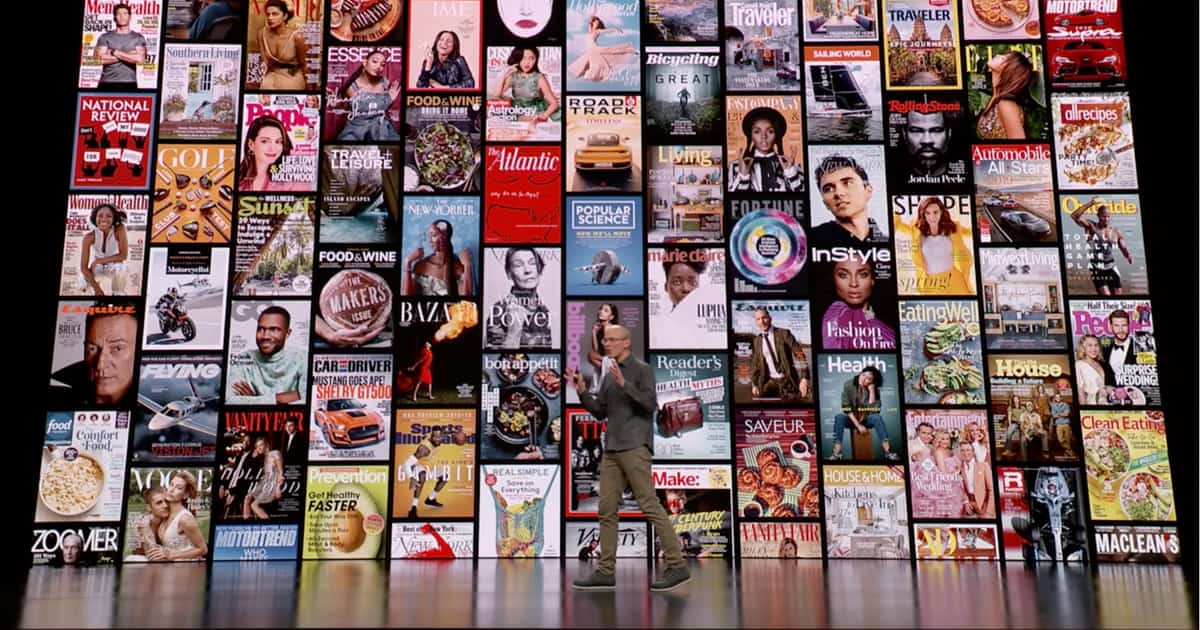Apple’s median hourly gender pay gap in the UK is now 15% in favor of men, an improvement from last year’s figures.
Articles by Charlotte Henry
Apple Music Subscription Prices Cut in India
Apple cut the cost of all tiers of Apple Music in India, following the arrival of Spotify and YouTube Music in the country.
Customers Are Buying-In To Digital Fashion
Digital fashion is a real and growing business. Vogue Business reported on the growing popularity of digital clothing lines, which are powered by 3D modeling. Scandinavian retailer Carlings released its first digital clothing collection in November 2018. It included 19 limited-edition genderless, sizeless pieces that cost between €10 and €30. It sold out in a week.
The concept might seem outlandish, but gamers have been spending real money on digital fashion items for years. Glu Mobile’s Covet Fashion game lets players style models with digitally rendered designer clothing and accessories. It brought in $53.4 million in sales last year (a portion of which is from advertising)…But as people live and display more of their lives online — coupled with growing concerns about sustainability — digital clothing has the potential to expand well beyond gaming.
Indie Games Developers Raise Apple Arcade Concerns
Users are excited about Apple Arcade – the company’s forthcoming games subscription service. While some indie game developers are excited at the prospect of being part of the service, Fast Company reported others had serious concerns. Either way, Apple Arcade’s launch is going to be a critical moment for indie games makers.
But not everyone’s convinced that subscription services will be a boon for developers. If these services become the predominant way that people play games, some independent creators say the result will be a new race to the bottom, in which game makers compete for a shrinking pool of revenue. “With a whole new model of selling video games like this, it comes with a whole bunch of potential ways that it can be bad for smaller developers and independent developers,” says Mike Rose, the founder of the independent game publisher No More Robots.
Amazon Aiming to Challenge AirPods With Alexa-Enabled Earbuds
Amazon is preparing to challenge Apple’s AirPods by releasing its own earbud headphones that will have Alexa integration.
UK Government to Propose Holding Social Media Bosses Liable for Harmful Content
The heads of social media companies could become personally liable for harmful content that gets published on their platforms under new plans set to be proposed by the British government. The plan, leaked to the Guardian, is also set to call for a new regulator, annual “transparency reports” from social media companies and co-operation with law enforcement.
Under plans expected to be published on Monday, the government will legislate for a new statutory duty of care, to be policed by an independent regulator and likely to be funded through a levy on media companies. The regulator – likely initially to be Ofcom, but in the longer term a new body – will have the power to impose substantial fines against companies that breach their duty of care and to hold individual executives personally liable.
Analysts: Apple TV+ is no 'Netflix Killer'
Apple TV+ is not set to be a “Netflix Killer”, according to a new report by analysts, who were also underwhelmed by Apple News+.
Amazon Preparing to Launch Over 3,000 Satellites to Help Provide Broadband
Amazon is working to launch thousands of satellites into space as part of a bid to offer global internet access. CNBC found details of the project, known as Project Kuiper, contained within some of Amazon’s federal findings. A company spokesperson confirmed the project, saying it “will provide low-latency, high-speed broadband connectivity to unserved and underserved communities around the world.”
Amazon’s proposal is for a network of 3,236 satellites. Building, launching and operating the satellites will require intensive capital, likely billions of dollars. But Bezos has already been funding Blue Origin with upwards of $1 billion a year and Amazon itself remains one of the world’s most valuable companies. GeekWire first reported the filings on Thursday. Kuiper is the name of a belt of objects that include asteroids and dwarf planets. It was named for the late Dutch American astronomer Gerard Kuiper.
Apple Pay for Transit Goes Live in Singapore
Commuters in Singapore can now use Apple Pay to pay for their journey, with New York City preparing to pilot the service in the coming days.
Vodafone Connect First 5G Train Station in UK
Birmingham New Street Station became the first train station in the UK to be connected to a 5G network during a test by Vodafone.
Facebook Runs Sponsored Content in Daily Telegraph to Help Get Its Message Out
As part of its drive for better publicity, Facebook has been running a series of articles with British broadsheet newspaper The Daily Telegraph. The partnership was reported by Business Insider as something of an exposé. In fact, it looks to be a fairly standard, and clearly marked, sponsored content campaign. However, what struck me as interesting is how seriously Facebook is taking improving its PR. More conventional adverts have appeared in Britain too. After months of bad publicity, it is taking action to get its message across and try and reassure users.
The series — called “Being human in the information age” — has published 26 stories over the last month, to run in print and online, and is produced by Telegraph Spark, the newspaper’s sponsored content unit. “Fake news, cyberbullying, artificial intelligence — it seems like life in the internet age can be a scary place,” the articles say. “That’s why Telegraph Spark and Facebook have teamed up to show how Facebook and other social media platforms are harnessing the power of the internet to protect your personal data.”
Apple's Relationship with Intel Could Delay 5G iPhone
Apple is planning to release a 5G iPhone in September 2020. However, its somewhat deteriorating relationship with chipmaker Intel is putting that at risk. Fast Company looked into the situation, and why Intel could decide Apple’s business is just not worth it.
In order to deliver big numbers of those modems in time for a September 2020 iPhone launch, Intel needs to deliver sample parts to Apple by early summer of this year, and then deliver a finished modem design in early 2020. Intel said in November that it expected to ship the 8160 5G modem in the second half of 2019. The company, responding to this story, pointed me to that same statement. “As we said in November 2018, Intel plans to support customer device launches in 2020 with its XMM 8160 5G multimode modem,” a company representative said in an email late Wednesday.
Apple Shows The Power of its Products in The Workplace
The latest Apple video looks to show-off how its devices can empower people at work. After “bumping into” the boss, a member of small team secures a crucial meeting for her and her colleagues. Using a range of Apple’s devices and services, the team scramble to meet their tight deadline. Apple has always been associated with creative and glamorous industries. Showing its products in a more standard office environment makes for a nice change, and can perhaps be seen as something of a challenge to Microsoft. The clip’s title, The Underdogs, and it’s message underline the company’s corporate philosophy well too.
A Look Inside the New iPad Air
Following on from its teardown of the new iPad Mini, iFixit took its tools to the new iPad Air Wednesday. Essentially, the Air is just a bigger Mini and the teardown revealed many of the same features. Pleasingly, all the screws can again be removed with a single Phillips screwdriver. However, there is also lots of glue holding everything in place, making fixing it that bit more difficult. Like its smaller sibling, the iPad Air received a 2 out of 10 rating for repairability.
This new Air hails from the Pro line, inheriting its dimensions, a Smart connector, and a handful of other features from the 2017 10.5″ Pro….A single Phillips driver takes care of all the screws. Many components are modular and can be replaced independently, but the Lightning port is soldered to the logic board. Battery replacement is possible, but still unnecessarily difficult. Gobs of adhesive hold many parts and cables in place, complicating all repairs.
Addiction to Fortnite is a Real Thing
Fornite has racked up millions of players, and billions of dollars of profit. That is thanks in large part to how devoted players are to the game. It turns out though that the friend you joked is addicted to it might actually be. The Boston Globe spoke to psychologists and other health professionals who explained that Fortnite addiction is a real thing.
Parents worrying about kids spending too much time playing video games isn’t new. But a few significant factors have combined to make today’s games harder to stop playing….More insidious, game makers have taken a lesson from slot-machine designers and started employing a variable reward schedule, according to Ofir Turel, a professor of Information Systems and Decision Sciences at California State University Fullerton. In the case of “Fortnite,” the psychological manipulation combines with the game’s flashy colors, its many potential plots, and the element of social interaction to stimulate the brain and train it to “crave” more, he e-mailed the Globe.
Scoring With Apple Pay: Tottenham Hotspur Prepare to Open Doors at First Fully Cashless Stadium
Tottenham Hotspur will open the doors to the first fully cashless stadium Wednesday. Fans have to purchase items using Apple Pay or a card.
Apple News+ Hit 200,000 Subscribers in First 48 Hours
Over 200,000 people subscribed to Apple News+ in the first 48 hours the service was available, although concerns from media leaders remain.
Japan Display to Supply OLED Screens for Apple Watch
Japan Display will start to supply OLED screens for the Apple Watch, currently supplied by LG, later this year.
Turn Your Mac Into a DJ Booth
There are some fantastic software options to help you DJ properly on your Mac and without breaking the bank.
Inside the iPad Mini 5
iFixit‘s teardowns are always worth a read, and its look at the iPad Mini 5 is no different. It showed that the device’s battery flex connector is now adhered to the cover bracket. This means it automatically disconnects when the bracket is removed. This should help prevent damaging the backlighting when fixing the new iPad Mini. Amongst other things, the teardown also revealed an upgraded front-facing camera module and updated battery connectors.
A single Phillips driver takes care of all the screws. Many components are modular and can be replaced independently, but the Lightning port is soldered to the logic board. Battery replacement is possible, but still unnecessarily difficult. Gobs of adhesive hold many parts and cables in place, complicating all repairs. Removing the home button is tough, and will be required for display replacement if you want to keep Touch ID functionality.
Spread Fake News in Singapore, You Could go to Prison for a Decade
While lawmakers in the UK and U.S. lament fake news, and Mark Zuckerberg promises Facebook will do better, Singapore is taking action. The government there is looking to impose serious fines and even 10-years imprisonment on those who spread fake news. While users may be pleased something is being done, Bloomberg News reported that tech firms raised some concerns.
The new measures will require online sites to show corrections to false or misleading claims and take down falsehoods, according to a bill put forward in Parliament on Monday by the government…The bill also intends to impose criminal sanctions — including fines of up to S$1 million ($740,000) and 10 years in prison — against those who spread an online falsehood with intent to prejudice the public interest, and those who make a bot to spread an online falsehood. The sanctions will also apply to anyone providing services for the purpose of spreading falsehoods in return for a reward.
UX Designers Need to Read and Watch Marie Kondo
I think there is much to learn from Marie Kondo. Her Netflix series was an absolute favorite, and her book, ‘The Life-Changing Magic of Tidying Up’, is a global bestseller. Indeed, her KonMari method is sneaking into various aspects of life. Writing for The Next Web, Leona Henryson explained how relevant it is to UX design.
In her book, Kondo calls for questioning a thing’s purpose and establishing whether its purpose has been fulfilled since it has been bought. I feel it’s safe to say this inquisitive attitude towards an object’s place in the grand scheme of things is very similar to how UX designers make decisions. Excess is a problem in any interface out there, and a cluttered flow always damages the user experience…Kondo’s book teaches us to be straightforward about the purpose of certain things in our designs and to be brave about editing out the things our users won’t need.
Foxconn Preparing to Produce iPhone in India
Foxconn is ramping up its preparations to start producing the iPhone in India, with a trial run set to start within weeks.
Mark Zuckerberg Launches His Tech Manifesto, Echoes Tim Cook's Call for U.S. Version of GDPR
After months of criticism, Facebook CEO Mark Zuckerberg posted “four ideas to regulate the internet” Saturday. Like Apple CEO Tim Cook, he called on lawmakers to pass data protection legislation akin to the EU’s GDPR. Mr. Zuckerberg also said he wanted to see privacy legislation as well as third-party standards to judge harmful content.
I believe it would be good for the internet if more countries adopted regulation such as GDPR as a common framework. New privacy regulation in the United States and around the world should build on the protections GDPR provides. It should protect your right to choose how your information is used — while enabling companies to use information for safety purposes and to provide services. It shouldn’t require data to be stored locally, which would make it more vulnerable to unwarranted access. And it should establish a way to hold companies such as Facebook accountable by imposing sanctions when we make mistakes.




















